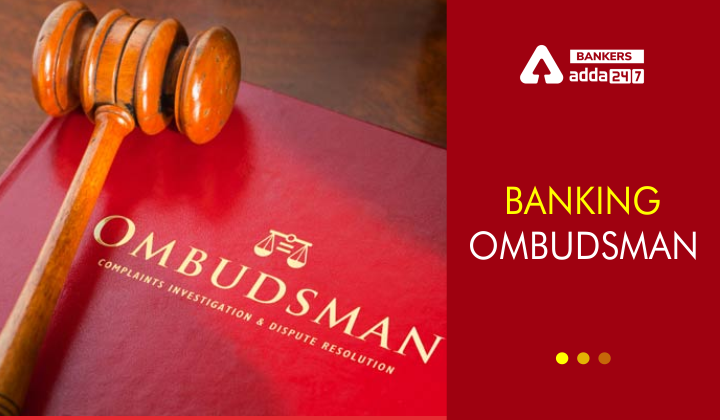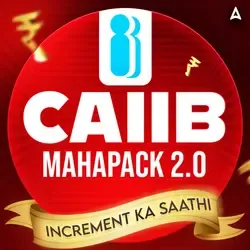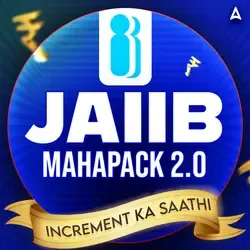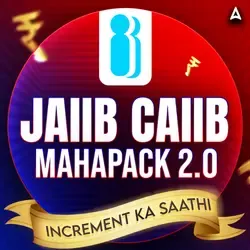Table of Contents
Banking Ombudsman: We get to hear the term Banking Ombudsman frequently and in JAIIB/CAIIB Exam many questions are asked about Banking Ombudsman. In the banking industry Banking Ombudsman is a very important terminology and every aspirant must be aware of this term. Banking Ombudsman is a senior official appointed by the RBI to listen the complaints of the customers when they have any issues regarding the banking services. In this article we have provided detailed information on Banking Ombudsman, Banking Ombudsman Scheme, their appointment, tenure and type of complaints that a Banking Ombudsman handle.
Who is a Banking Ombudsman?
A senior official appointed by the Reserve Bank of India(RBI) to rectify the complaints of the customer against the inadequacy of certain banking services covered under the grounds of complaint that is described under Clause 8 of the Banking Ombudsman Scheme 2006 is known as a Banking Ombudsman. The office of Banking Ombudsman is located at 22 places(in the state capitals).
What is Banking Ombudsman Scheme?
An expeditious and inexpensive form to bank customer for resolution of complaints related to the services provided by the banks is known as Banking Ombudsman Scheme. Banking Ombudsman Scheme was created under the section 35 of BR Act 1949. Banking Ombudsman Scheme was initiated in 1995 and later amended in the years 2006 and 2009.
All scheduled commercial banks, RRBs, and Scheduled Primary Co-operative Banks are covered under the Banking Ombudsman Scheme. A customer can file a complaint against a bank if bank provoke fair practice code for the lenders or the code of bank’s commitment to customer issued by the BCSBI(Banking Codes and Standards Board of India).
Banking Ombudsman: Appointment and Tenure
The Reserve Bank of India(RBI) appoints one or more of its officers on the position of Chief General Manager or General Manager and they are known as the Banking Ombudsman. At a time Banking Ombudsman is appointed for 3 years and their tenure will not exceed the period of 3 years at a time. On 30th June every year the Banking Ombudsman send a report to the Governor of the Reserve Bank of India.
Types of Complaints handled by the Banking Ombudsman
The types of complaints that are handled by a Banking Ombudsman are listed below:
(a) non-payment or inordinate delay in the payment or collection of cheques, drafts, bills etc.
(b) non-acceptance, without sufficient cause, of small denomination notes provided for any purpose, and for charging of commission in respect thereof
(c) non-acceptance, without sufficient cause, of coins presented and for charging of commission in respect thereof
(d) non-payment or delay in payment of inward remittances
(e) fail to issue or delay in issuing of drafts, pay orders or bankers’ cheques
(f) non-adherence to the authorized working hours
(g) fail in providing or delay in providing a banking facility (other than loans and advances) promised in written by a bank or its direct selling agents
(h) delays, non-credit of proceeds to parties’ accounts, non-payment of deposit or non-observance of the Reserve Bank directives, if any, applicable to rate of interest on deposits in any savings, current or other account maintained with a bank
(i) complaints from Non-Resident Indians of having accounts in India in
relation to their remittances from abroad, deposits and other bank related matters
(j) refusal to open deposit accounts without any valid reason for refusal
(k) levying of charges without noticing the customer before
(l) non-adherence by the bank or its subsidiaries to the instructions of Reserve Bank on ATM/Debit card operations or credit card operations
(m) non-disbursement or delay in disbursement of pension (to the extent that the grievance can be attributed to the action on the part of the bank concerned, but not with regard to its employees)
(n) refusal to accept or delay in accepting payment towards taxes, as required by Reserve Bank/Government
(o) refusal to issue or delay in issuing, or failure to service or delay in servicing or redemption of Government securities
(p) forced closure of deposit accounts without due notice or without a proper reason
(q) refuse to close or delay in closing the accounts
(r) non-adherence to the fair practices code as adopted by the bank
(s)non-adherence to the provisions of the Code of Bank’s Commitments to Customers issued by Banking Codes and Standards Board of India and as adopted by the bank
(t) non-observance of Reserve Bank guidelines on engagement of recovery agents by banks
(u) any other matter related to the violation of the directives issued by the Reserve Bank in relation to banking or other services.
Related Posts:
FAQs: Banking Ombudsman
Q.1 Who is a Banking Ombudsman?
Ans. Banking Ombudsman is a senior official appointed by the Reserve Bank of India(RBI) to rectify the complaints of the customer against the inadequacy of certain banking services.
Q.2 What do you know by Banking Ombudsman Scheme?
Ans. An expeditious and inexpensive form to bank customer for resolution of complaints related to the services provided by the banks is known as Banking Ombudsman Scheme.
Q.3 Which all banks are covered under the Banking Ombudsman Scheme?
Ans. All scheduled commercial banks, RRBs, and Scheduled Primary Co-operative Banks are covered under the Banking Ombudsman Scheme.
Q.4 What are the types of complaints handled by a Banking Ombudsman?
Ans. The types of complaints handled by a Banking Ombudsman is discussed above in the article.






 GA Capsule for SBI Clerk Mains 2025, Dow...
GA Capsule for SBI Clerk Mains 2025, Dow...
 The Hindu Review October 2022: Download ...
The Hindu Review October 2022: Download ...
 How to Start Preparing for IBPS PO from ...
How to Start Preparing for IBPS PO from ...





